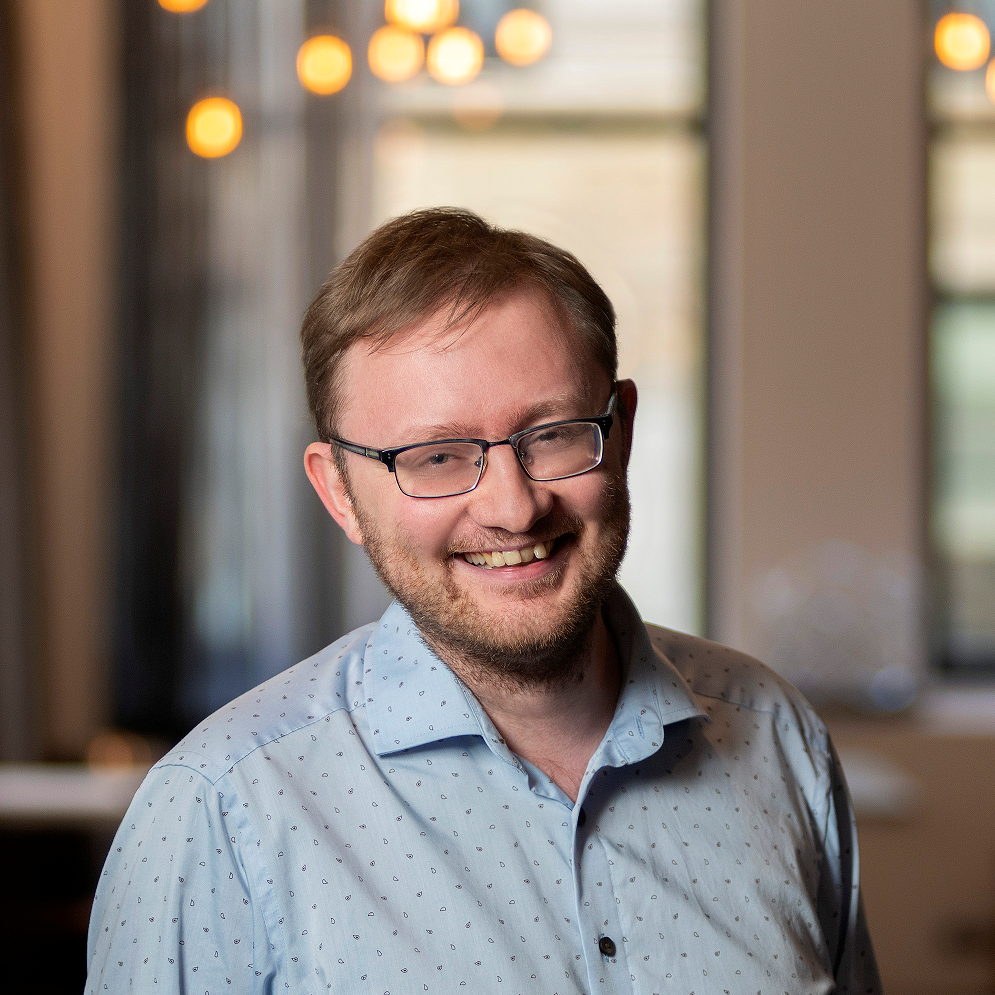Assistant Professor Sasha Philippov has been named one of 20 members of the 2024 class of Packard Fellows for Science and Engineering. Sponsored by the David and Lucile Packard Foundation, the $875,000, five-year award for early-career researchers provides “flexible funding and the freedom to take risks and explore new frontiers in their fields of study,” according to the foundation.
Philippov is the seventh UMD faculty member—and the second from UMD’s Department of Physics—to receive this competitive award since its launch in 1988.
“I am delighted to see the recognition Sasha is receiving with the awarding of the Packard Fellowship,” said UMD Physics Chair Steven Rolston. “His outstanding work places our excellent plasma theory group at the center of multi-messenger astronomy, with multiple connections to efforts in physics and astronomy both within and beyond the university.”
Each year, the Packard Foundation invites 50 universities to nominate two faculty members for a Packard Fellowship, which is ultimately narrowed down to 20 recipients. Previous UMD awardees include Janice Reutt-Robey (chemistry and biochemistry) in 1990, William Pugh (computer science) in 1991, Victor Yakovenko (physics) in 1995, Victor Muñoz (formerly chemistry and biochemistry) and Sarah Tishkoff (formerly biology) in 2001, and Vedran Lekić (geology) in 2014. Sasha Philippov
Sasha Philippov
Funding from the Packard Fellowship will enable Philippov to develop new computational codes capable of running on the world’s biggest supercomputers. In his research, Philippov uses computational astrophysics to study some of the most mysterious objects in the universe, including neutron stars and black holes. He is particularly interested in discovering how hot, magnetized gas—known as plasma—produces the light we see around exotic objects, such as the ring of light captured in the first image of a black hole in galaxy M87.
His new simulations would shed light on “how plasma shines around black holes,” as well as fast radio bursts—mysterious flashes of radio waves that are extremely bright and short-lived, lasting for mere milliseconds. Some of these extremely bright signals travel for billions of years before reaching Earth, but their exact origin remains an open question in astrophysics.
“Remarkable recent observational discoveries, including fast radio bursts and silhouettes of black holes, make it breathtaking and timely to work in this field,” Philippov said. “The common theoretical challenge to explaining stunning observations of neutron stars and black holes is understanding the behavior of relativistic plasma, the hot, magnetized, collisionless gas of charged particles producing the observed light under extreme conditions that we cannot explore on Earth.”
Simulations can complement images captured by the Event Horizon Telescope and other observatories, enabling researchers like Philippov to explore the physics of the highly energized electrons in plasma. He expressed gratitude to the Packard Foundation for supporting “high-risk, high-reward” research like the development of his new codes that could—if successful—yield much more realistic simulations.
“It could allow us to run three-dimensional kinetic simulations of black hole accretion, which we were not able to run before,” Philippov said.
Graduate students and postdoctoral researchers in Philippov’s lab will also play a hands-on role in developing this code, running and analyzing simulations, and constructing theoretical models of plasma phenomena.
Since joining UMD in 2022, Philippov has received a 2024 Sloan Research Fellowship, which provided him with $75,000 to study the production of neutrinos (weakly interacting particles) around black holes and magnetars (neutron stars with the strongest magnetic fields in the universe). He was also awarded a 2024 Thomas H. Stix Award for Outstanding Early Career Contributions to Plasma Physics Research for his “seminal contributions to the theory and simulation of collisionless astrophysical plasmas, especially compact objects.”
Although Philippov is excited to receive a Packard Fellowship, it is also bittersweet. Rolston and UMD Physics Professor Bill Dorland helped deliver the fellowship news to Philippov over a Zoom call last month, which ended up being the last time he and Dorland spoke.
Dorland, who was a mentor and friend to Philippov, died in September following a 20-year battle with chordoma, a rare cancer. In many ways, Philippov’s research will carry on Dorland’s legacy in computational plasma physics.
“Bill was a remarkable, kind and generous person. His passing left a giant void in all who had the privilege of knowing and working with him,” Philippov said. “He often mentioned that writing code is not just his job but a part of his very being. We will continue forging ahead in his memory.”
Original story by Emily C. Nunez: https://cmns.umd.edu/news-events/news/sasha-philippov-awarded-2024-packard-fellowship